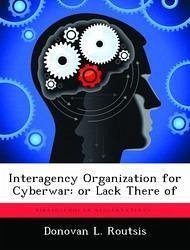Many people take for granted things they cannot see, smell, or touch. For most people, security in cyberspace is one of these things. Aside from the securing their home personal computer with the latest anti-virus, the majority of Americans take government and corporate cyber security for granted assuming the professionals have security of the nation's military networks, sensitive government data, and consumers' personal data and financial information under control. Outside of an occasional news story about a denial of service internet attack or an "I Love You" virus, what goes on behind the closed compact disc drive doors does not concern most of the nation. The chilling fact is the nation should be concerned about what is going on in cyberspace. Since the terrorist attacks on 9/11, the nation has taken a renewed interest in securing the homeland, to include efforts to protect the countries critical infrastructure such as electrical plants, dams, and water supplies. It is no secret that terrorists are interested in striking these targets with the intent of inflicting catastrophic physical and economic damage to western civilization. What many people do not realize is, the computer network systems which monitor and manage these systems, and many others, are also under attack by what some are calling cyber terrorists. Although the government and industry has undertaken a significant amount of effort to protect the nation's military, non-military government, financial, and industrial networks, more work is necessary.
Hinweis: Dieser Artikel kann nur an eine deutsche Lieferadresse ausgeliefert werden.
Hinweis: Dieser Artikel kann nur an eine deutsche Lieferadresse ausgeliefert werden.








